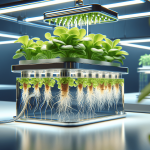This post may contain affiliate links. As an Amazon Associate, we may earn commissions from qualifying purchases.
Have you ever wondered why more people are turning to organic methods for controlling pests in their gardens and homes? The world of pest control is filled with a myriad of chemicals that promise swift and effective results. However, these chemical solutions often come with a host of problems including health risks, environmental destruction, and even resistance in pest populations. This brings us to the question: what exactly are the benefits of using organic pest control methods?
In this friendly guide, you’ll find insights into the many advantages of opting for organic pest control. You’ll discover not only how these methods work but also why they represent a sustainable and responsible choice for both your health and the environment.
Why Choose Organic Pest Control?
Before diving into the benefits of organic pest control, it’s important to understand why there’s a growing shift towards this approach. Organic pest control is not just a trend; it’s a movement towards greater sustainability and safety.
The Rise of Organic Choices
The interest in organic pest control is part of a broader cultural shift towards organic products and lifestyles. With increased awareness about the potential dangers of chemicals, many people are turning towards natural and organic alternatives in food, cleaning products, and yes, even pest control.
A Healthier Alternative
Chemical pesticides, while effective, can pose serious health risks to humans. Skin irritations, respiratory issues, and even more severe health complications can arise from exposure to these toxic substances. Organic pest control methods, on the other hand, use natural ingredients that are far less likely to cause such harm.
Environmental Impact
One of the most compelling reasons to use organic pest control is the positive impact it has on the environment. Traditional chemical pest control methods can have far-reaching and damaging effects on ecosystems.
Preserving Biodiversity
Chemical pesticides can indiscriminately kill not just pests but also beneficial insects such as bees, ladybugs, and butterflies. By choosing organic methods, you support the preservation of biodiversity, allowing beneficial insects to thrive while effectively managing pest populations.
Reducing Pollution
The chemical runoff from pesticides can contaminate soil and water sources, leading to pollution and harming wildlife. In contrast, organic pest control methods minimize environmental contamination, ensuring that water and soil remain clean and healthy.

Safety for You and Your Family
Your family’s health and safety are paramount, and the use of organic pest control can significantly reduce health risks.
Non-Toxic Components
Organic pest control utilizes natural ingredients such as essential oils, plant extracts, and minerals. These components are non-toxic and safe for you, your family, and your pets.
Safer Application
With organic methods, you avoid the harsh chemicals that can linger on surfaces and in the air. This reduces your exposure risk, which is especially important for households with young children or pets who may come into direct contact with treated areas.
Sustainable Choices
Embracing organic pest control is inherently about making sustainable decisions that benefit not just you, but also future generations.
Encouraging Soil Health
Many organic pest control options, like compost teas and beneficial microorganisms, enhance soil health instead of depleting it. Healthy soil supports plant growth, which in turn attracts beneficial insects that naturally control pests.
Harmony with Nature
Organic methods often work by aligning with natural processes. For example, introducing predator insects to control pest populations or using plants that naturally repel pests can create a balanced ecosystem.

Effectiveness of Organic Methods
A common misconception is that organic pest control is less effective than chemical options. Yet, when applied correctly, organic methods can be just as effective, if not more so in the long term.
Tailored Solutions
Organic pest control involves understanding the specific needs of your space, the particular pests you’re dealing with, and the natural alternatives best suited for your situation. This customized approach often results in more effective management.
Resilience to Resistance
One major issue with chemical pesticides is that pests can develop resistance over time, rendering these products ineffective. Organic methods typically involve a variety of approaches which makes it difficult for pests to develop resistance.
Practical Organic Methods
Now that you’re aware of the numerous benefits, let’s look at some practical organic pest control methods you can implement.
Companion Planting
This involves growing certain plants together to naturally repel pests. For example, planting marigolds next to tomatoes can deter nematodes.
Neem Oil
Derived from the seeds of the neem tree, neem oil acts as a natural pesticide that disrupts the life cycle of insects.
Diatomaceous Earth
A powder composed of fossilized algae, diatomaceous earth can prevent and control a variety of pests by dehydrating them upon contact.
Natural Predators
Introducing natural predators like ladybugs and lacewings can help control aphid populations.
Here’s a simple table to remember some of these methods:
| Method | Description | Target Pests |
|---|---|---|
| Companion Planting | Growing plants together to repel pests | Various garden pests |
| Neem Oil | Natural oil that affects pests’ life cycle | Aphids, whiteflies, and more |
| Diatomaceous Earth | Dehydrates pests upon contact | Ants, snails, fleas |
| Natural Predators | Introducing insects that eat harmful pests | Aphids, mites |
Challenges and Considerations
Like any pest control method, organic pest control comes with its own set of challenges and considerations.
Patience is Key
Organic methods might take longer to show results. Patience and persistence are crucial in achieving long-term pest management success.
Regular Monitoring
Organic pest control requires regular monitoring and assessment of pest levels to ensure effective management. Being proactive is essential to catch any potential issues early.
Conclusion
Choosing organic pest control methods offers a multitude of benefits ranging from health and environmental advantages to more sustainable and long-term results. By making this choice, you contribute to a healthier planet and create a safer environment for your family. Whether you’re a seasoned gardener or just starting, exploring organic pest control can be a fulfilling journey where you learn to harmonize with nature.
Have you tried organic pest control methods in your garden or home? What was your experience? The benefits are certainly compelling, and taking the step towards these methods can be both rewarding and impactful.








